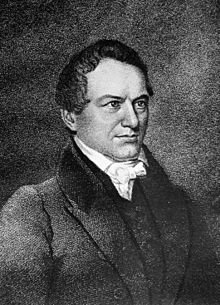
Back روبيرت يونج هاين ARZ رابرت وای. هآین AZB Robert Young Hayne German رابرت وای. هااین Persian Robert Y. Hayne Hungarian Robert Y. Hayne Swedish
Robert Y. Hayne | |
|---|---|
 | |
| 32nd Intendant of Charleston, South Carolina | |
| In office September 5, 1836 – September 4, 1837 | |
| Preceded by | Edward W. North |
| Succeeded by | Henry Laurens Pinckney as Mayor |
| 54th Governor of South Carolina | |
| In office December 13, 1832 – December 11, 1834 | |
| Lieutenant | Charles Cotesworth Pinckney |
| Preceded by | James Hamilton Jr. |
| Succeeded by | George McDuffie |
| United States Senator from South Carolina | |
| In office March 4, 1823 – December 13, 1832 | |
| Preceded by | William Smith |
| Succeeded by | John C. Calhoun |
| Chairman of the Senate Committee on Naval Affairs | |
| In office 1825–1832 | |
| Preceded by | James Lloyd |
| Succeeded by | George M. Dallas |
| 5th Attorney General of South Carolina | |
| In office December 18, 1818 – December 7, 1822 | |
| Governor | John Geddes Thomas Bennett Jr. |
| Preceded by | John Smythe Richardson Sr. |
| Succeeded by | James L. Petigru |
| 16th Speaker of the South Carolina House of Representatives | |
| In office November 23, 1818 – December 18, 1818 | |
| Governor | Andrew Pickens John Geddes |
| Preceded by | Thomas Bennett Jr. |
| Succeeded by | Patrick Noble |
| Member of the South Carolina House of Representatives from St. Philip's and St. Michael's Parish | |
| In office November 28, 1814 – December 18, 1818 | |
| Personal details | |
| Born | Robert Young Hayne November 10, 1791 St. Pauls Parish, South Carolina, US |
| Died | September 24, 1839 (aged 47) Asheville, North Carolina, US |
| Political party | Democratic |
| Spouse(s) | Frances Henrietta Pinckney Rebecca Mott Alston |
| Profession | Attorney, Soldier |
| Signature | |
| Military service | |
| Allegiance | United States of America |
| Branch/service | United States Army South Carolina militia |
| Rank | Captain Quartermaster General |
| Unit | 3rd South Carolina Regiment |
| Battles/wars | War of 1812 |
Robert Young Hayne (November 10, 1791 – September 24, 1839) was an American politician. He served in the United States Senate from 1823 to 1832, as Governor of South Carolina 1832–1834, and as Mayor of Charleston 1836–1837.[1] As Senator and Governor, he was a leading figure in the Nullification Crisis and, along with John C. Calhoun and James Hamilton Jr., a vocal proponent of the doctrines of states' rights, compact theory, and nullification; his 1830 debate in the Senate with Daniel Webster is considered a defining episode in the constitutional crisis which precipitated the American Civil War.
- ^ Encyclopedia of American Biography, p. 465.
© MMXXIII Rich X Search. We shall prevail. All rights reserved. Rich X Search